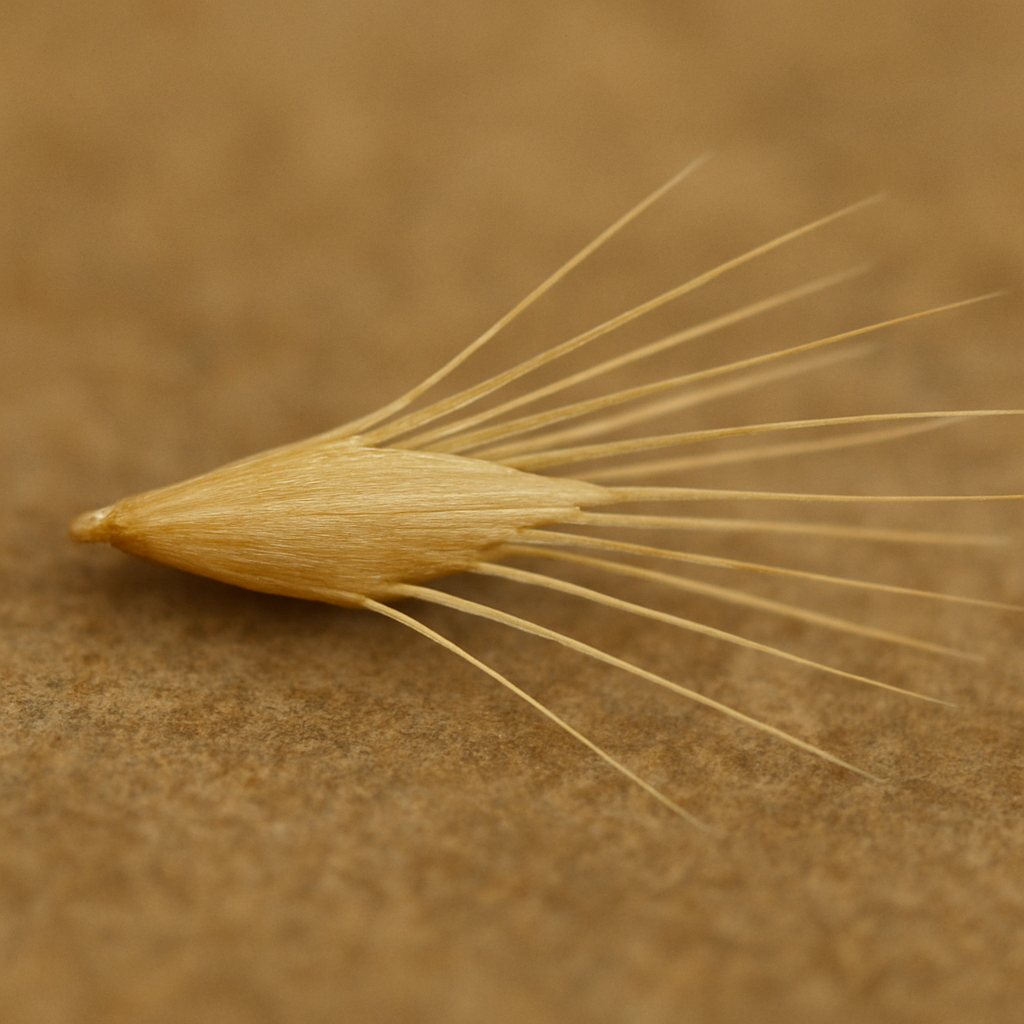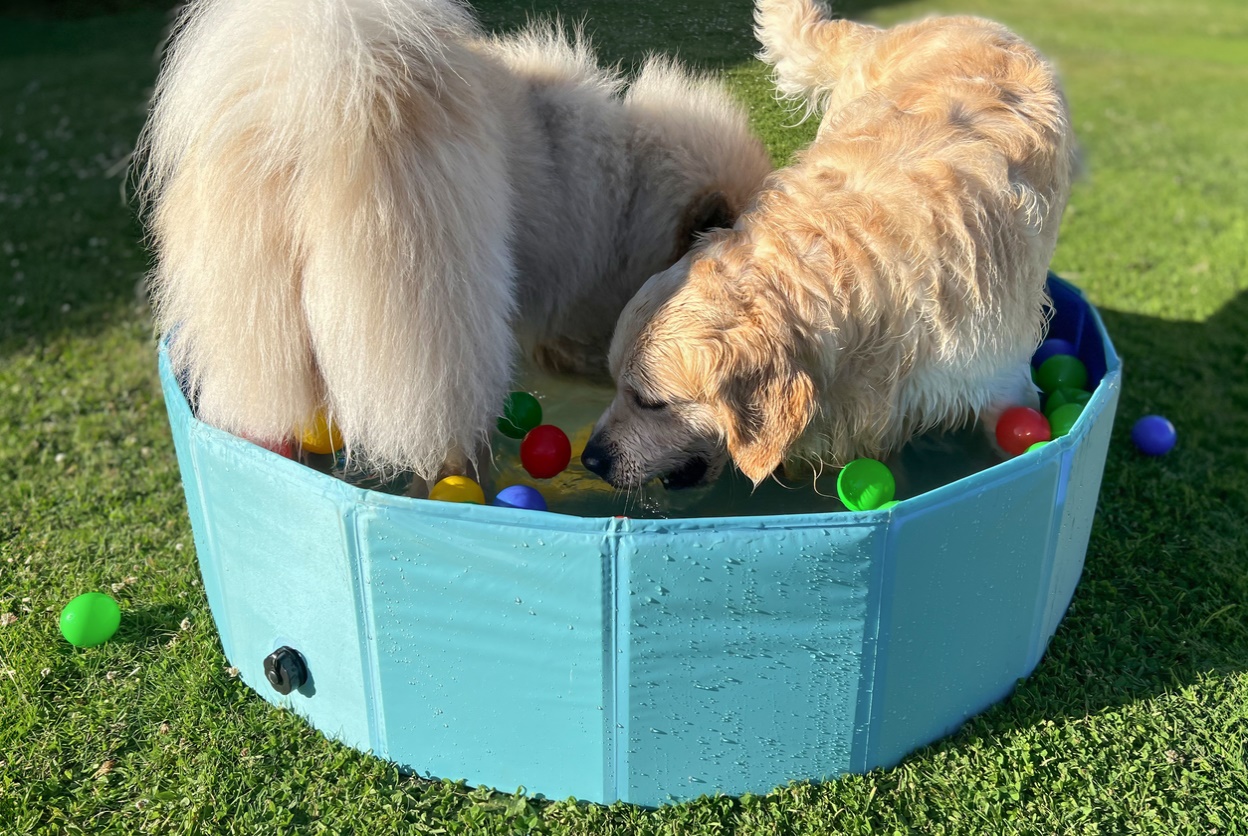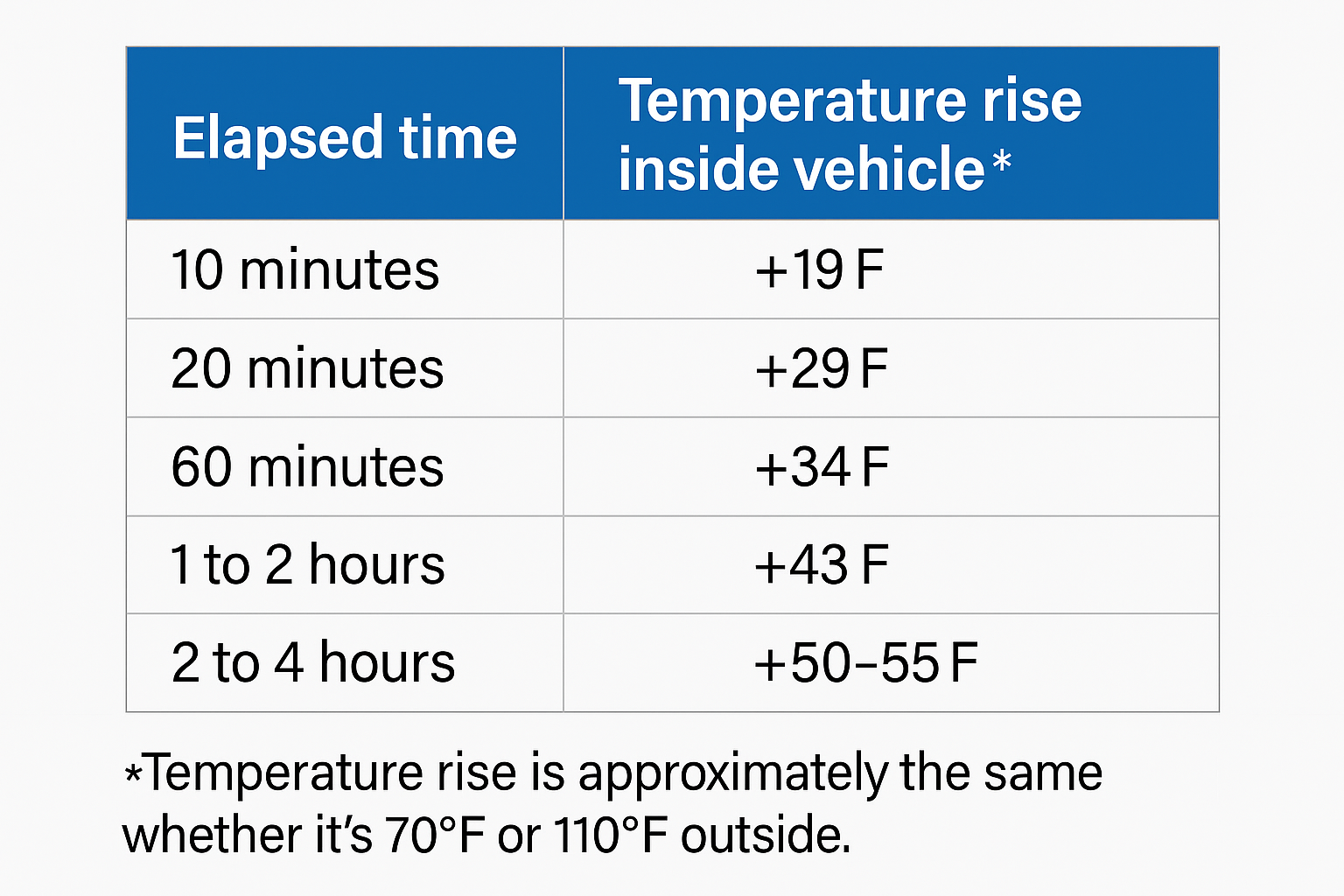Summer Pet Safety Tips from Your Veterinary Hospital in College Station, Texas
At College Hills Veterinary Hospital, we love seeing pets enjoy the sunshine right alongside their people, but Texas summers can bring challenges for your furry family members. From scorching temperatures to seasonal allergies and summer travel, there is a lot to keep in mind when it comes to keeping your pet safe. That is why we have put together these summer pet safety tips—to help your pet stay healthy, happy, and comfortable all season long.
Beat the Heat: How to Keep Pets Cool in Texas Summers
When temperatures rise, pets depend on us to help them stay cool and safe. Here’s how you can protect your pet during the hottest months:
- Keep fresh, cool water available at all times.
- Ensure your pet has access to shade outdoors—or better yet, keep outdoor time brief during peak heat hours.
- Walk dogs early in the morning or later in the evening.
- Use the 5-second rule: if the pavement is too hot for your hand, it’s too hot for your pet’s paws.
- Try cooling mats or frozen treats to help your pet stay comfortable.
- Limit sun exposure, especially for pets with light-colored or thin coats.
Short-nosed breeds like Bulldogs and Pugs, senior pets, and those who are overweight are especially vulnerable to heat stress.
How Hot Is Too Hot?
Not sure if it is safe to bring your dog or cat outside? If it feels too hot for you, it is definitely too hot for them. Key warning signs include:
- Heavy panting even before playtime
- Seeking out cool surfaces indoors
- Heat index over 85°F
Recognizing Signs of Overheating
Heat exhaustion can set in quickly. Watch for:
- Excessive panting or drooling
- Red or pale gums
- Vomiting or diarrhea
- Unsteady walking or collapse
If you notice any of these signs, move your pet to a cooler area, offer small amounts of water, apply cool (not cold) wet towels to their belly, paws, and underarms, and call us immediately. Heatstroke is an emergency.
Sneezing, Scratching, Licking? It Could Be Allergies.
Allergies are not just a human problem—pets suffer too! If your pet is constantly scratching, licking, sneezing, or has irritated skin, seasonal allergies may be to blame. Common triggers include grasses, pollen, and even certain foods. To learn more about our pet allergy treatment please read: Pet Allergy Treatment in College Station.
At College Hills Veterinary Hospital, we offer allergy consultations to help identify the source of your pet’s discomfort and create a customized plan to bring them relief.
Watch Out for Foxtails: A Hidden Summer Danger

Foxtails may look like ordinary grass, but their sharp, barbed seed heads can pose a serious risk to both dogs and cats during the summer months in College Station. You may have walked through foxtail grass and found some of these seed heads stuck in your pants or socks. They are pointy and sharp. Foxtail seeds can easily become lodged in your pet’s paws, ears, nose, eyes, or skin.

Unlike splinters, foxtails seed heads do not stop at the surface. They burrow forward, which means once they penetrate the skin or enter an opening like the nose or ears, they can travel deeper into the body. This can lead to painful infections, abscesses, or in severe cases, life-threatening complications such as:
- Lung punctures if inhaled and migrated into the respiratory tract
- Organ damage if the foxtail travels internally
- Deep-seated infections that can spread through the bloodstream
Signs Your Pet Might Have a Foxtail:
- Persistent licking or chewing at a paw
- Head shaking, ear scratching, or signs of ear pain
- Frequent sneezing, pawing at the nose, or nasal discharge
- Squinting, redness, or discharge from the eyes
- Swelling, limping, or unexplained lumps under the skin
Foxtails do not dissolve or come out on their own—if you notice any of these symptoms, prompt veterinary attention is critical. Left untreated, foxtails can cause serious harm and even become fatal.
How to Protect Your Pet:
- Avoid walking through tall, dry grass where foxtails thrive.
- Keep your yard trimmed and weed-free.
- Inspect your pet’s coat, paws, ears, and face after any outdoor activities.
Pet-Safe Gardening: Plants to Avoid
Gardening this summer? Some plants are toxic to pets and should be avoided:
- Lilies (especially dangerous for cats)
- Sago palm
- Oleander
- Hydrangea
- Foxglove
- Azaleas
Safer plant choices include marigolds, zinnias, or pet-friendly grasses.
5 Fun Summer Activities for Pets
Summer is a perfect time to bond with your pets in fun and safe ways. Here are some ideas:
Dog Days of Summer: Fun in the Sun for Your Pup

- Early morning walks or hikes through shaded parks.
- Backyard sprinkler play or a kiddie pool.
- Frozen treat treasure hunts in the yard.
- Shaded picnics at local dog-friendly parks.
- DIY obstacle courses with household items like broomsticks, cones, and hula hoops.
Cool Cat Adventures: Summer Fun for Felines

- Cozy window-watching stations with a fan or frozen water bottle nearby.
- Outdoor time in a secure catio or screened porch.
- Pop-up pet tents or backyard enclosures for safe exploration.
- Puzzle feeders and indoor treat hunts.
- Cooling mats or hammocks near breezy, screened windows.
Planning a Summer Getaway?
If your summer plans include travel, here is a quick pet travel checklist:
- Ensure vaccinations are up to date.
- Pack food, medication, toys, leash, and ID tags.
- Microchip your pet if you have not already.
- Carry a copy of your pet’s vaccination records.
- Plan for water and potty breaks.
The AVMA (American Veterinary Medical Association) says NEVER leave your pet alone in a parked vehicle, no matter what the outdoor temperature or how long you think you’ll be gone.
Your Partner in Pet Wellness—All Summer Long
At College Hills Veterinary Hospital, we are more than just your veterinarian—we are your partner in ensuring your pet lives a long, happy, and healthy life. Whether you need guidance on summer safety, allergy relief, or travel preparation, our compassionate team is here to help.
Schedule your pet’s summer wellness exam today and let us keep the tails wagging and whiskers twitching all season long!
College Hills Veterinary Hospital
209 Dominik Dr
College Station, TX 77840
(979) 693-7806
